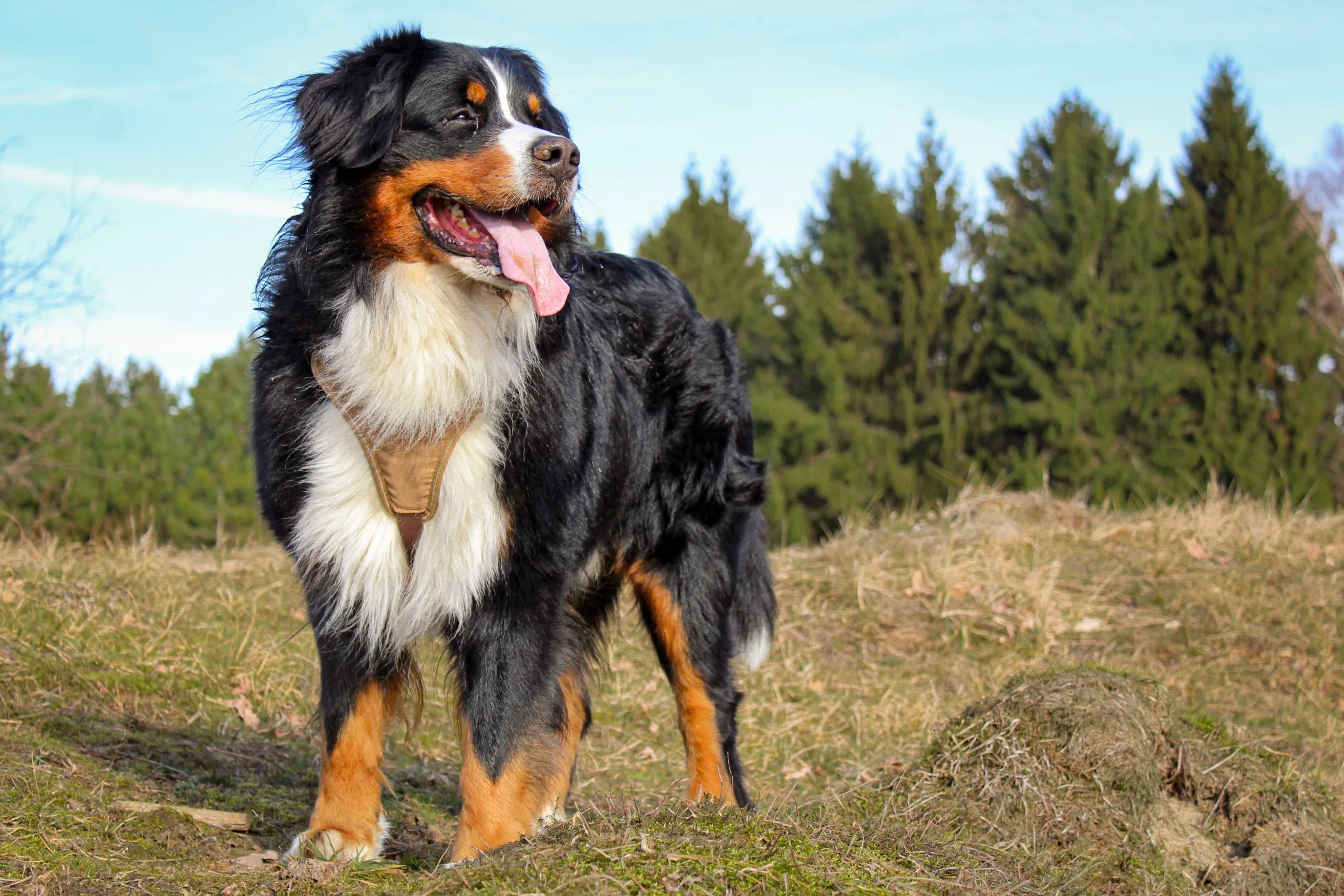How Much Do Bernese Mountain Dogs Weight? The Bernese Mountain Dog, with its striking appearance and gentle demeanor, is a popular breed known for its loyalty and versatility. As with any breed, understanding their size and weight is essential for proper care and management. In this article, we’ll delve into the weight range of Bernese Mountain Dogs, explore their size variations, and address common questions about their weight and classification.
For more about dogs click here
Introduction
Bernese Mountain Dogs, often referred to simply as “Berners,” are a majestic and affectionate breed that hails from Switzerland. These dogs are renowned for their distinctive tricolor coats, which feature a black base, white markings, and rust accents. Their sturdy build and friendly nature make them beloved family companions, but their size and weight can vary based on factors such as genetics, diet, and overall health.
Bernese Mountain Dog Weight: A Range
Bernese Mountain Dogs are considered a large to giant breed, known for their robust physique and imposing presence. When it comes to weight, there is a considerable range that can be influenced by factors such as gender and genetics. On average, a healthy adult Bernese Mountain Dog can weigh anywhere from 70 to 115 pounds (32 to 52 kg).
Size and Proportions
Beyond weight, Bernese Mountain Dogs possess distinct proportions that contribute to their appearance:
- Height: A fully grown Bernese Mountain Dog stands around 23 to 27.5 inches (58 to 70 cm) at the shoulder. Males tend to be taller and more massive than females.
- Body Length: Their body length is slightly longer than their height, contributing to their well-balanced and sturdy build.
- Muscle Mass: Bernese Mountain Dogs are muscular and well-muscled, reflecting their historical role as working dogs on Swiss farms.
Common Questions About Bernese Mountain Dog Weight
**1. How much do Bernese Mountain dogs weigh in kg?
The weight of Bernese Mountain Dogs typically ranges from 32 to 52 kg, with males being on the heavier side.
**2. How big is a full grown Bernese Mountain dog?
A full grown Bernese Mountain Dog can stand between 23 to 27.5 inches (58 to 70 cm) at the shoulder.
**3. Are Bernese Mountain dogs heavy?
Yes, Bernese Mountain Dogs are considered a heavy breed due to their sturdy build and substantial bone structure.
**4. Is a Bernese Mountain dog a large or giant breed?
Bernese Mountain Dogs are classified as a large to giant breed due to their size and weight.
**5. What is the heaviest dog?
The title of the heaviest dog is often attributed to the English Mastiff, which can weigh over 220 pounds (100 kg) or more.
Caring for Bernese Mountain Dogs
Due to their size and weight, Bernese Mountain Dogs require proper care and attention to maintain their health and well-being:
**1. Diet: Feed your Bernese Mountain Dog a balanced and nutritionally complete diet to support their growth and overall health. Consult your veterinarian for dietary recommendations based on their age, weight, and activity level.
**2. Exercise: While Bernese Mountain Dogs have a calm and gentle nature, they still require regular exercise to keep them in good physical and mental shape. Daily walks, playtime, and mental stimulation are essential.
**3. Regular Veterinary Checkups: Regular veterinary visits are crucial to monitor your Bernese Mountain Dog’s health, address any concerns, and ensure they are up-to-date on vaccinations and preventive care.
**4. Grooming: Their thick and dense coat requires regular brushing to prevent matting and shedding. Regular grooming sessions also allow you to check for any skin issues or abnormalities.
**5. Socialization and Training: Proper socialization and training are essential to ensure that your Bernese Mountain Dog grows into a well-mannered and confident companion.
Conclusion
Bernese Mountain Dogs are magnificent animals with a size and weight that matches their gentle and loving nature. Their weight can vary within a range influenced by genetics, gender, and other factors. Understanding their weight and proportions, along with providing proper care and attention, is key to ensuring a happy and healthy life for these majestic companions. If you have any concerns about your Bernese Mountain Dog’s weight or health, consulting a veterinarian is always recommended.
Click here for more
